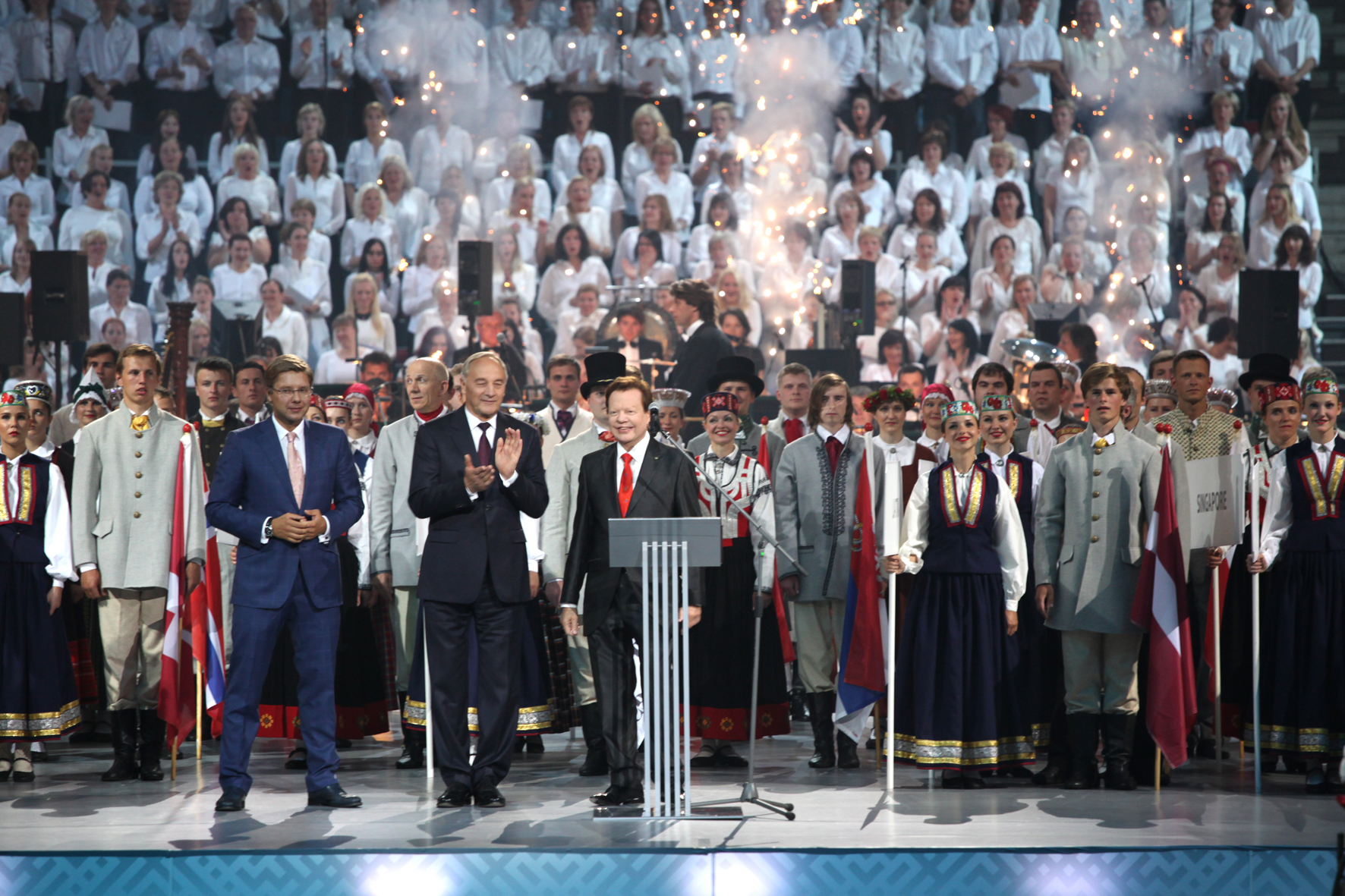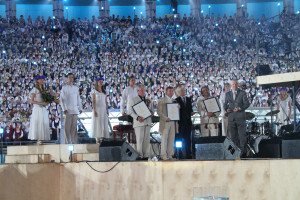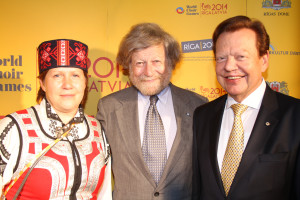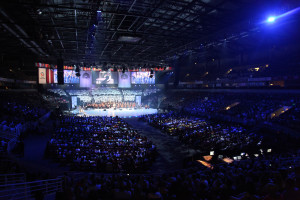By Christian Ljunggren, Artistic Director, World Choir Games
The Eighth World Choir Games, organized by INTERKULTUR and the Riga 2014 Foundation took place in Riga between July 9 and July 19. Literally the whole choral world was represented. Choirs came by air – or in some cases by bus or ship – to the beautiful capital of Latvia to join in singing. 73 nations were represented in the 460 choirs and the total number of singers was an incredible 27.000.
They all came to one of the greatest choral nations of the world, a country where choral music has a special place in the heart of every citizen. This meeting between the choral world and the choirs of Latvia was perhaps most evident during the great event in Latvia’s biggest open air stage in Mezaparks. The Latvian hosts had organized a version of their own traditional song festival with 15.000 singers on the stage: 10.000 from Latvia itself, and a further 5.000 representing the rest of the world. At this occasion a newly installed “World Choir Peace Prize” was given to the three Baltic countries for their singing tradition, especially manifested in their song festival. Ambassadors from Estonia and Lithuania and the Minister of Culture from Latvia received the Prize from the hands of the INTERKULTUR President, Mr. Günter Titsch.
Presentation of the World Choir Peace Prize at Mezaparks © Roger Schmidt
But of course the event primarily gave the opportunity for the choirs to compete in different categories according to the type of choir or the kind of music they performed. It is a sacrosanct principle in all INTERKULTUR festivals and especially in the World Choir Games that all choirs should be recognized – “participation is the highest honour.” This means that the awards ceremonies take a long time. But it usually does not matter because the atmosphere is always extremely exciting! When all choirs in a category have received their awards the champion is announced. The whole choir rushes on stage – mostly crying and shouting for joy. The flag of the winning nation is raised and their national anthem played. The host country was represented by six champions followed by South Africa with five champions. Other countries winning the Champions award were China, China/Hong-Kong SAR, Russia, Hungary, Venezuela, Finland, Denmark, Austria, Romania, Philippines, Netherlands, Indonesia and Sri Lanka.
The Honorary Artistic President Morten Lauridsen together with Diana Civle, the head of Riga 2014 and Günter Titsch © Roger Schmidt
Over 80 choral experts and professors of choral music from all over the world gathered in Riga. They had many different duties. Undoubtedly, most of them had a tough time being adjudicators in the many competitions. It could mean having jury meetings almost until midnight on some days. Many of them appeared in seminars and workshops Some of the headliners should be mentioned here. The two vocal ensembles, King’s Singers and The Real Group, both did several concerts and very popular workshops. There were three specially invited composers who were presented in workshops and performed music in different concerts: Morten Lauridsen, Javier Busto and Ēriks Ešenvalds. Ešenvalds had written the official song of the World Choir Games 2014 My Song with text by Rabindranath Tagore.
The Closing Ceremony © Studi43
The World Choir Games are divided into two parts. In the central days, the World Choir Council meets. This time 43 countries were represented and the main part of the meeting consisted of the symposium ‘The Colourful World of Choral Music’. The council members had sent in reports concerning the relationship between ethnic music and choral music in their countries. This was presented both in a valuable document and by demonstration by choirs and lecturers.
The World Choir Games was the biggest international event during “Riga 2014 – European Capital of Culture” year – and there could be no better way for the city to demonstrate its cultural importance and the importance of world peace than having the whole world represented in this enormous event. This is what choral music uniquely can achieve in a world that for many of us at the moment seems insecure and full of conflicts.
Edited by Grace Kim, USA




